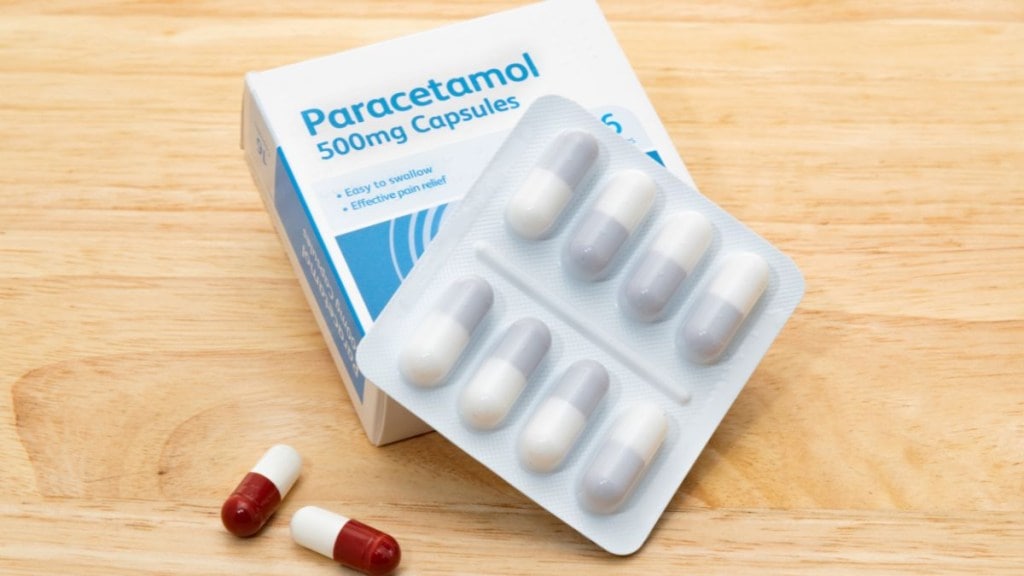US President Donald Trump recently made headlines for his press conference, yet again. Not for his political remarks or his appeal to be awarded the Nobel Peace Prize. He publicly linked Tylenol (Paracetamol or acetaminophen) to autism in children and urged pregnant women not to take the commonly used pill that helps in fever and pain management. His remarks were condemned by several researchers, and he was accused of fostering a distrustful agenda from his position of power. But what does science say?
Let’s start from the basics and define the properties of acetaminophen. This widely used analgesic and antipyretic drug prevents fever and provides pain relief, as per the National Library of Medicine. Commonly used to treat headache, muscle ache, it is a quick oral solution and remains effective for nearly 2 hours in an average adult.
Here are five myths busted about paracetamol and autism.
Myth 1: Paracetamol causes autism
Several epidemiological studies show no causal link between the use of paracetamol and autism during gestation. While genetics can largely impact this outcome, several factors during pregnancy are likely to affect the developing foetus. Everything from drug use to dietary conditions, there are several things a mother needs to factor in. But paracetamol might not be a cause of concern, if taken in prescribed amounts.
Approved by the FDA in 1951, the NHS recommended paracetamol as the first choice of painkiller, even during pregnancy. While many who may have taken the drug may fear that their child is likely to be diagnosed with autism, there is no direct link that has been proven yet.
Myth 2: A ‘very big factor’ in causing autism
Trump claimed that Tylenol (paracetamol) is a “very big factor” in autism, and advised mothers-to-be to “fight like hell not to take it.” While authorities warned that these statements were misleading and ultimately dangerous for women.
“Lots of potential risk factors for autism have been investigated and when you are doing this kind of research, it can be very difficult to disentangle what is truly a cause,” said Prof Laurie Tomlinson, professor of clinical epidemiology at the London School of Hygiene and Tropical Medicine.
Tomlison explained that older women are more likely to have autistic children, but at the same time, they are more likely to have an experience that calls for painkillers. They elaborated on other factors that might lead to an autistic child, including women with hypermobility, leading to more joint pains during pregnancy and the ultimate need for painkillers.
Myth 3: Studies show evidence linking paracetamol to autism
A study was conducted in Sweden, led by Renee Gardner, an associate professor of epidemiology at Karolinska Institute. They surveyed the records of 2.4 million children born between 1995 and 2019. It was found that bout 1.5% of children whose mothers were prescribed paracetamol during pregnancy were autistic, compared with 1.3% of children whose mothers were not prescribed the drug, as quoted by a Guardian report.
However, when they took out genetic factors from the equation, the causal link between paracetamol and autism completely vanished. This research, along with a similar study from Japan, concluded that there was no evidence to support linking autism to paracetamol as a direct cause of the condition.
Myth 4: Post-natal use of paracetamol increases the chance of autism
Some studies believe that post-natal administration of paracetamol might be directly linked to autism spectrum disorder (ASD). However, this hypothesis is solely based on animal and observational cases and relies on insufficient human data to prove it, as mentioned in the study titled ‘Role of paracetamol in the pathogenesis of autism spectrum disorder: A growing perspective (2020)’
Myth 5: Paracetamol should be avoided during pregnancy
The European Medicines Agency (EMA) green flags the use of paracetamol in pregnancy, in accordance with official recommendations. As per a 2019 study, EMA reviewed that expecting mothers who took the drug found no risk of malformations in the developing foetus. It debunked the link between paracetamol and neurodevelopmental disorders.
Disclaimer: Always consults a doctor before starting any diet or fitness routine. Always seek the advice of your doctor with any questions about a medical condition.
